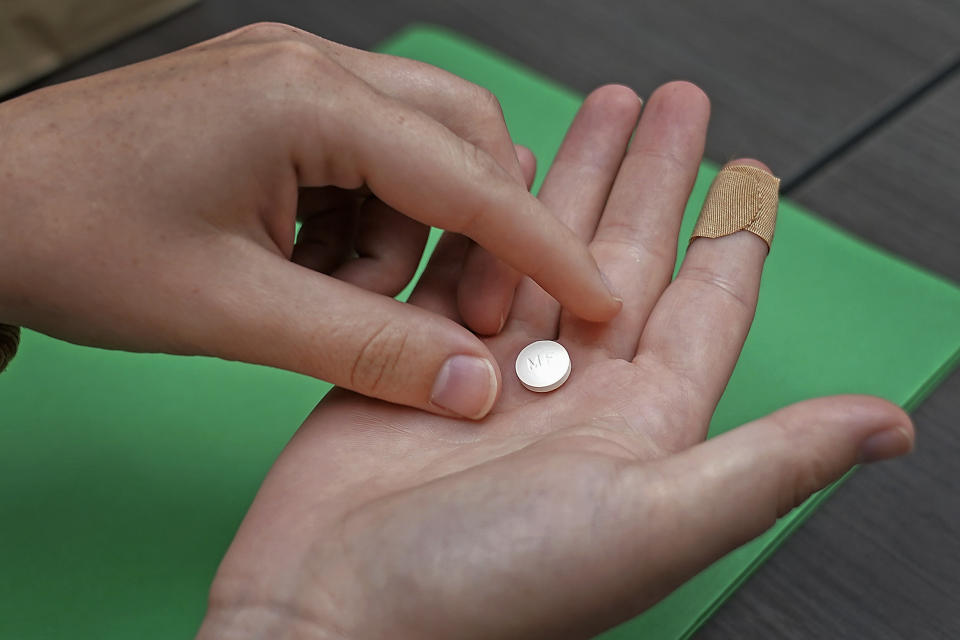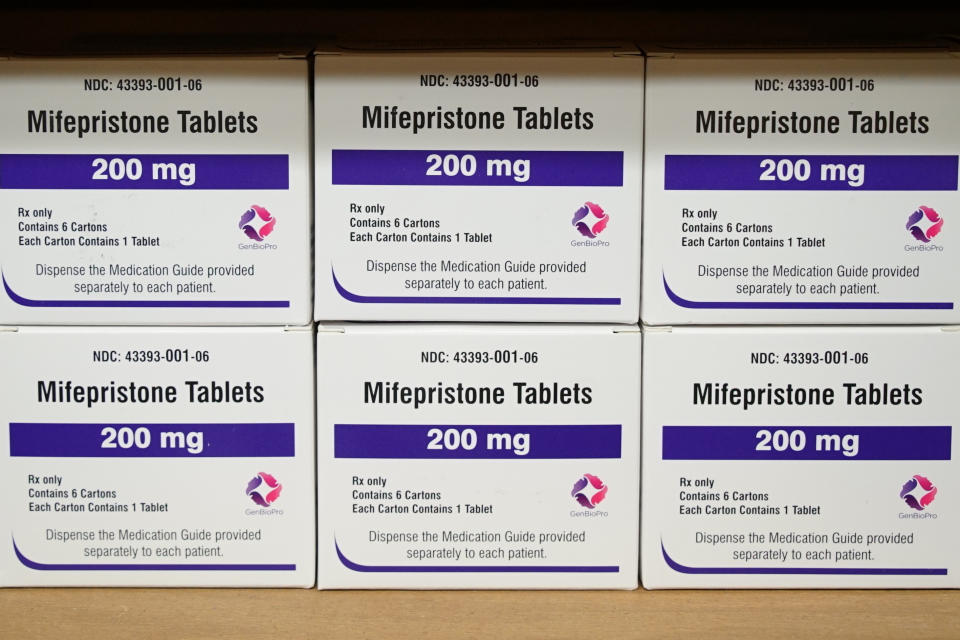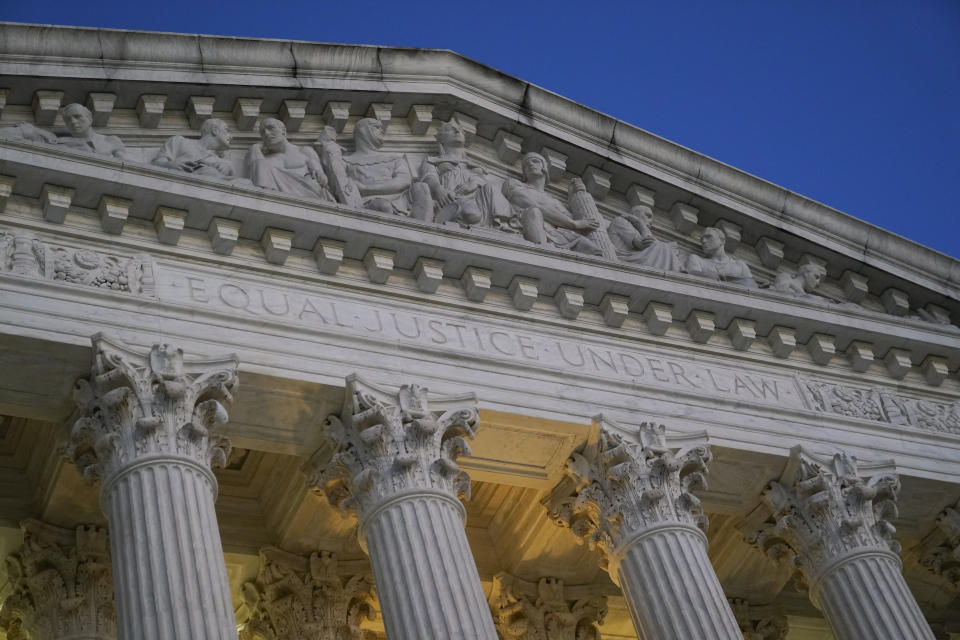Supreme Court is asked to reject limits on a drug used in the most common method of abortion
WASHINGTON (AP) — The Supreme Court is being asked to reverse an appellate ruling that would cut off mail-order access to a drug used in the most common method of abortion in the United States.
The case would be the first major abortion dispute decided by the Supreme Court since it overturned Roe v. Wade last year. That ruling has led to bans on abortion at all stages of pregnancy in 15 states, with some exceptions, and once cardiac activity can be detected, which is around six weeks, in two others.
In appeals filed Friday, the Biden administration and New York-based Danco Laboratories, the manufacturer of mifepristone, argued that federal judges should not second-guess the Food and Drug Administration's approval of the drug or the conditions under which it is dispensed.
A federal appeals court ruling in August would revoke approval for sending the drug through the mail and would shorten, from the current 10 weeks to seven weeks, the time during which mifepristone can be used in pregnancy.
The justices previously intervened in the case in April to assure the availability of mifepristone while a challenge proceeds in the federal courts. The Supreme Court is widely expected to agree to hear the case and have the final word, probably by early summer 2024 and in the middle of presidential and congressional campaigns.
In urging the justices to reverse the 5th U.S. Circuit Court of Appeals, lawyers for Danco wrote, “For the women and teenage girls, health care providers, and States that depend on FDA’s actions to ensure safe and effective reproductive health care is available, this case matters tremendously.”
The Justice Department said the appeals court ignored a scientific judgment about mifepristone's safety and effectivness since its approval in 2000.
“To the government’s knowledge, the decisions below mark the first time any court has restricted access to an FDA-approved drug based on disagreement with FDA’s expert judgment about the conditions required to assure that drug’s safe use — much less done so after those conditions had been in effect for years,” Solicitor General Elizabeth Prelogar, the administration's top Supreme Court lawyer, wrote.
Abortion opponents filed their challenge to mifepristone in November and initially won a sweeping ruling in April revoking the drug's approval entirely. The appeals court left intact the FDA's initial approval of mifepristone. But it would reverse changes regulators made in 2016 and 2021 that eased some conditions for administering the drug.
When the high court voted in April to block any changes until a final decision, Justices Samuel Alito, the author of last year's decision overturning Roe, and Clarence Thomas said they would have allowed some restrictions to take effect while appeals played out.
Women seeking to end their pregnancies in the first 10 weeks without more invasive surgical abortion can take mifepristone, along with a second drug, misoprostol. The pills are now used in more than half of all abortions in the U.S.
Misoprostol also is used to treat other medical conditions. Health care providers have said they could switch to misoprostol if mifepristone is no longer available or is too hard to obtain. Misoprostol is somewhat less effective in ending pregnancies.
The FDA has eased the terms of mifepristone’s use over the years, including allowing it to be sent through the mail in states that allow access and reducing the dosage that is needed to end a pregnancy.

 Yahoo News
Yahoo News 


